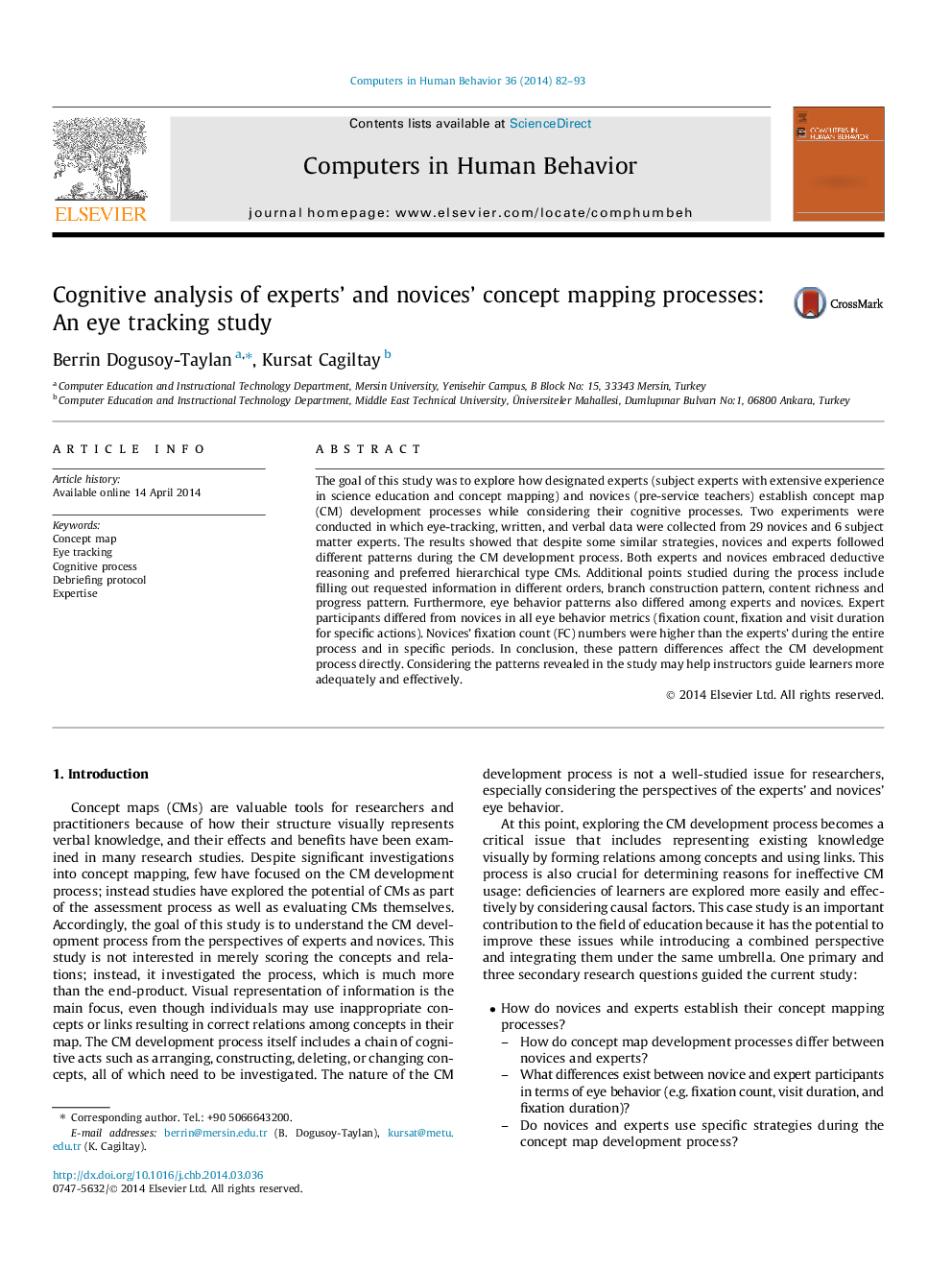| Article ID | Journal | Published Year | Pages | File Type |
|---|---|---|---|---|
| 350752 | Computers in Human Behavior | 2014 | 12 Pages |
•This study aimed to explore designated experts’ and novices’ concept map development processes.•Two experiments were designed in which eye-tracking, written and verbal data were collected.•29 Novices and 6 experts participated to the study.•We found that experts and novices differed in patterns followed during CM development process.•Both experts and novices embraced deductive reasoning strategy and preferred hierarchical CMs.
The goal of this study was to explore how designated experts (subject experts with extensive experience in science education and concept mapping) and novices (pre-service teachers) establish concept map (CM) development processes while considering their cognitive processes. Two experiments were conducted in which eye-tracking, written, and verbal data were collected from 29 novices and 6 subject matter experts. The results showed that despite some similar strategies, novices and experts followed different patterns during the CM development process. Both experts and novices embraced deductive reasoning and preferred hierarchical type CMs. Additional points studied during the process include filling out requested information in different orders, branch construction pattern, content richness and progress pattern. Furthermore, eye behavior patterns also differed among experts and novices. Expert participants differed from novices in all eye behavior metrics (fixation count, fixation and visit duration for specific actions). Novices’ fixation count (FC) numbers were higher than the experts’ during the entire process and in specific periods. In conclusion, these pattern differences affect the CM development process directly. Considering the patterns revealed in the study may help instructors guide learners more adequately and effectively.
